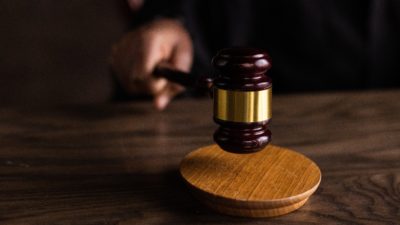Special Prosecutor One-Pager
Learn MoreProsecution
The public prosecutor in the United States has incredible discretionary powers, and with those powers, incredible responsibilities. Criminologists recognize prosecutors as likely the most powerful actor in the criminal justice system—yet an actor that often escapes accountability and reform. Several factors are impacting the role and impact of public prosecutors throughout the country; primarily, consistent underfunding and prosecutorial reform movements are rapidly reshaping the office.
A lack of resources is crippling prosecutors nationwide. The rural Pueblo County DA’s office in Colorado is understaffed by over 20 percent. The former District Attorney of San Francisco said his office had reached a “tipping point” as they faced increased crime levels with fewer attorneys. Dane County in Wisconsin, which includes the state’s capital, has added just one prosecutor position in over 35 years despite gaining over 200,000 residents. Defense caseload standards, which call for no more than 150 felonies or 400 misdemeanor cases per year per attorney, have been endorsed since 1973 by various stakeholders—though no similar standard exists for prosecutors, it is evident they are overwhelmed. Prosecutors in Cook County, Illinois handled 800-1,000 cases each, with 300 felonies open at any time. Harris County, Texas prosecutors were found to handle over 1,500 felonies per year, with 500 cases open at any time.
At the same time, progressive prosecution is reshaping the office and the relationship of the office with other criminal justice system actors, the legislature, and the public at large for the worse. “Progressive prosecution” (a phrase that could be characterized as a misnomer) broadly refers to an approach taken by some prosecutors in which they refuse to prosecute certain crimes—and sometimes entire categories of crimes—for personal or political reasons under the guise of prosecutorial discretion. Yet prosecutorial discretion has never been understood to allow prosecutors to decide which laws to enforce for these reasons. Aside from structural concerns, there is real evidence progressive prosecution policies increase violent crime.
In the only robust, peer-reviewed research article covering the de-prosecution phenomenon, Thomas P. Hogan identified that the de-prosecution of felonies is directly linked to an increase in homicide deaths. After a policy of prospective non-enforcement was adopted in Philadelphia under regressive prosecutor Larry Krasner, felony drug convictions dropped 72 percent, and felony weapons convictions dropped 53 percent. As a result, it is estimated that the community suffered 75 additional homicide deaths per year, an increase of 15 percent. In two other cities that adopted de-prosecution regimes, Baltimore and Chicago, the already-vulnerable communities suffered an additional 71 and 170 additional homicide deaths each year, respectively—an increase of 27 percent for both cities.
Innovative solutions are desperately needed to address these issues, but these solutions must delicately balance prosecutorial independence with the need for reform. It is crucial that any attempt to reform public prosecution be narrowly crafted and defensible with a focus on protecting public safety and supporting, rather than punishing, individual prosecutors.
Resources
Recent Commentary
Regressive Prosecutors
On a Saturday night this past February in St. Louis, 17-year-old Janae Edmonson’s…
Two Birds, One Prosecutor
Whether a prosecutor’s office fails to pursue felony charges because of resource constraints…

